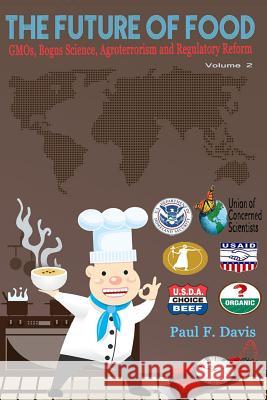The Future of Food: GMOs, Bogus Science, Agroterrorism and Regulatory Reform » książka
The Future of Food: GMOs, Bogus Science, Agroterrorism and Regulatory Reform
ISBN-13: 9781492174264 / Angielski / Miękka / 2013 / 334 str.
Global Reformation, Independent Science, Labeling and GMO Regulation FDA scientists report internal corruption and a broken food regulatory agency. Regulatory gaps in U.S. food statutes written long before the creation of genetic engineering or its products attest to the need to revamp and update the federal system. EPA, FDA and USDA need new guidance on product standards and safety determinations. As the food supply becomes increasingly globalized and interconnected, rules for monitoring GMOs must be updated, ambiguities resolved, and labeling enhanced. GE crops must be analyzed individually based on the geographic location and farming conditions, not only the introduced trait as currently occurs. The global burden of non-communicable diseases (NCDs) accounts for 36 of the 57 million deaths globally (63%) causing cardiovascular diseases, cancers, chronic respiratory diseases and diabetes. Nearly 1 in 4 Americans are projected to die from cancer with 1 in 3 developing some form of cancer over their lifetime. Two-thirds of adults living in the United States are overweight or obese. If the nations of the world do not establish their own food policies, systems and plans to protect public health; their societies will be adversely impacted by global food entering their borders from America. Hazard identification, transparent and traceable labeling, and sustainable agricultural practices are needed to protect the ecosystem, biodiversity, public health, and homeland security from bioterrorism. The manufacture of more toxic GMOs and GE fish adulterating food, disrupting the ecosystem, causing super weeds, and thwarting human health require independent scientific review, more strict regulation and labeling to forewarn consumers. Food insecurity is occurring on a global scale due to use of pesticides, herbicides, excitotoxins, food additives, preservatives, hormones, steroids, antibiotics, genetic manipulation, solvents, and chemicals in "food" processing. By comparing the food regulatory systems of the world and examining different approaches, insight can be gained to reform and improve food safety and protect public health.
Zawartość książki może nie spełniać oczekiwań – reklamacje nie obejmują treści, która mogła nie być redakcyjnie ani merytorycznie opracowana.











